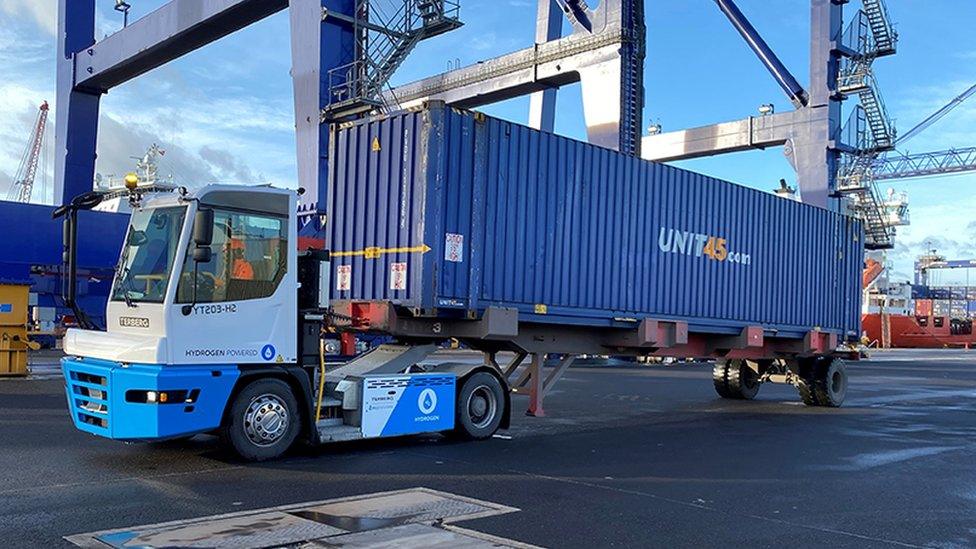Bangor Uni's Prince Madog ship in £5.5m hydrogen power switch
- Published
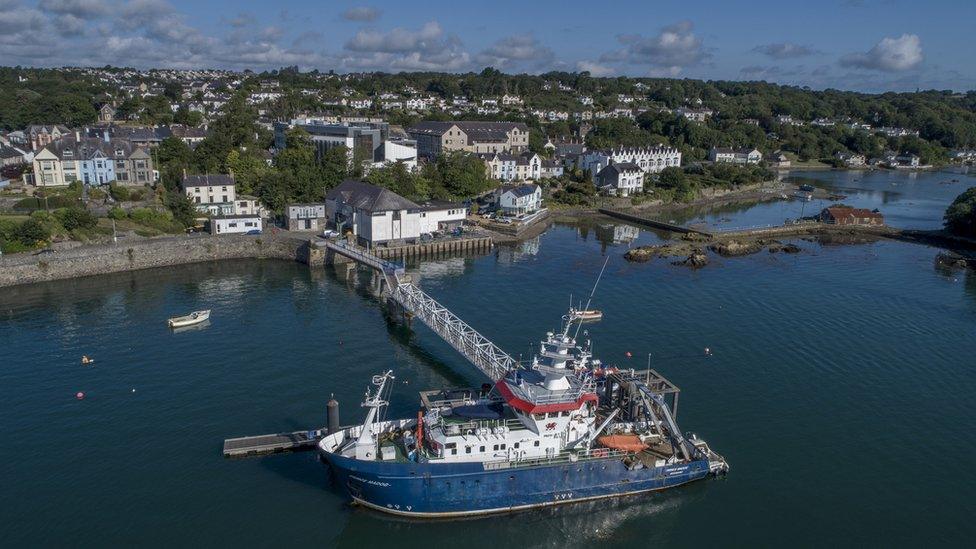
The £5.5m funding has come from the Department for Transport for "innovative clean maritime technologies"
A major scientific research vessel is expected to reduce its carbon emissions by 60% after a £5.5m retrofit to run on hydrogen power.
The Prince Madog, external is co-owned by Bangor University and used by scientists from around the UK for research science.
The two-year retrofit, using a hydrogen electric hybrid propulsion system, is expected be completed by 2025.
United Nations' group, International Maritime Organisation, wants shipping emissions cut 40% by 2030, external.
Bangor University said it was the "largest retrofit of its kind to date", external, using a hydrogen propulsion system with a diesel-fuelled main engine to enable zero emission operation at slow speeds or over short distances.
In normal operation, it will reduce emissions by up to 60%, it said.
The 20-year-old vessel is used for teaching trips with students from its School of Ocean Sciences as well by other specialists.
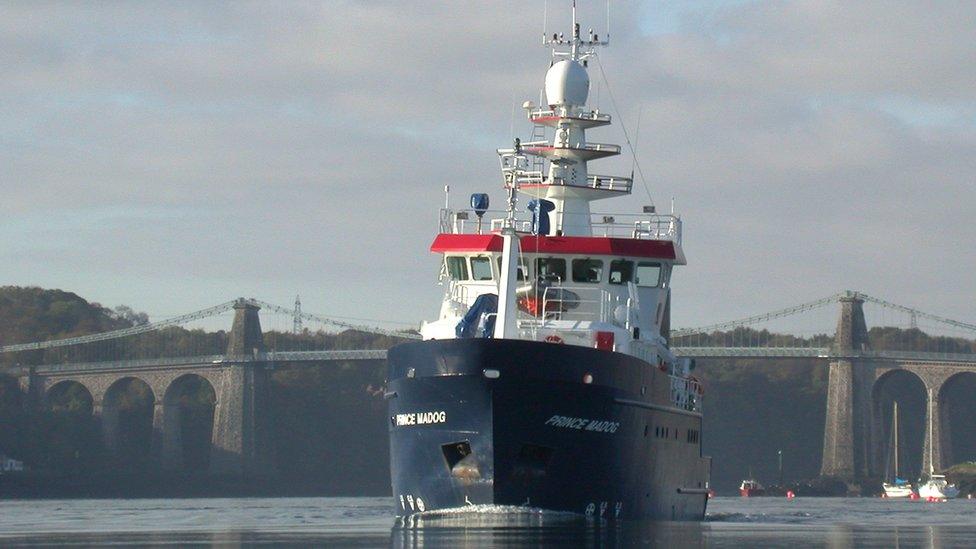
The Prince Madog is co-owned by Bangor University and used by its students and other UK research scientists
Its conversion will be delivered by a consortium, led by OS Energy, which operates a fleet of offshore service vessels including the Prince Madog.
Other partners include organisations involved in green maritime technology and hydrogen systems, including the universities of Exeter and Newcastle-Upon-Tyne.
OS Energy boss Martin Nuernberg said the project was "testament to our commitment to innovation and environmental responsibility and will demonstrate the potential of green technology application in the maritime industry".
The money has come from £60m in Department for Transport funding for "innovative clean maritime technologies", external.
The Prince Madog will receive its hydrogen from Anglesey's Holyhead Hydrogen Hub, external.
Councillor Nicola Roberts, Anglesey Council's climate change portfolio holder, said the vessel's retrofit was a "positive step on the journey to develop a low carbon economy" on the island.
"We are delighted to see that this innovative project will enable the Prince Madog research ship to be powered by hydrogen, thus reducing CO2 emissions, and developing a cleaner energy solution for the shipping industry," she said.
- Published22 February 2023
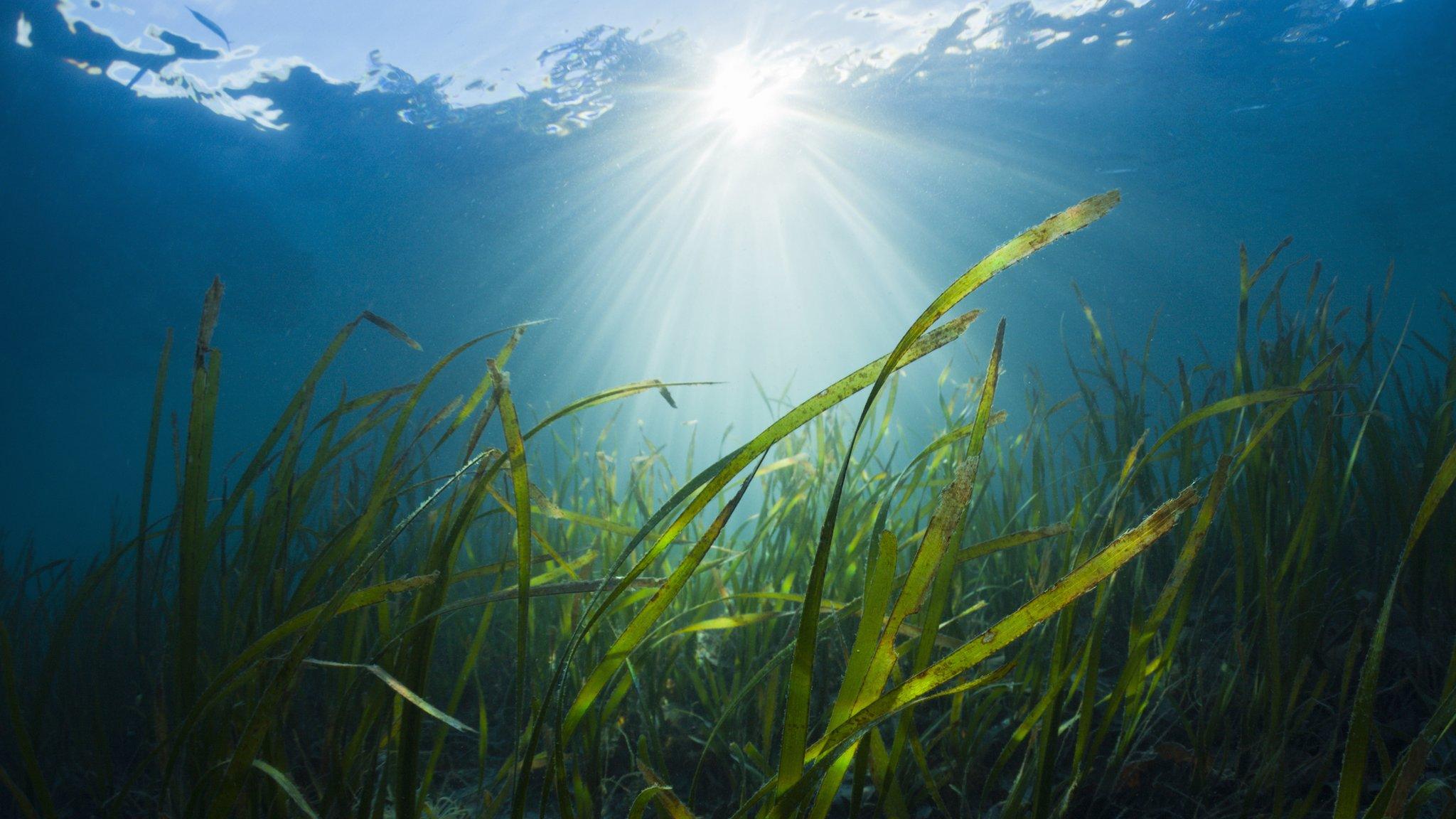
- Published6 January 2023
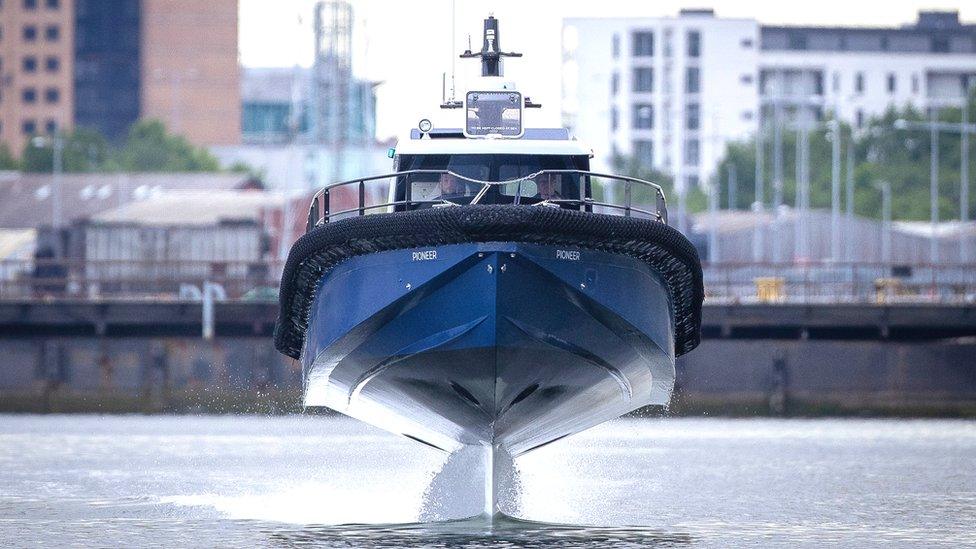
- Published4 January 2023
